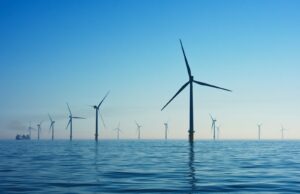In a report published today (January 30) by the think tank Green Alliance, it is stated that the current net-zero goals are impossible to achieve unless the government takes serious action to cut energy use.
In June 2019, the UK became the first major government to pass a law outlining plans to reach net-zero emissions by 2050.
However, according to Green Alliance, the government is failing to match these ambitions and unless serious changes are made then achieving this goal is impossible.
The authors of the report suggest that the government must focus on the energy supply in the three key sectors of transport, building and industry, rather than just focusing on individual reductions in emissions.
Transport has the highest emissions of any sector, which according to Green Alliance is largely due to the increase in the numbers of passenger cars, around 15% more than in 2001.
The researchers highlight that although improving technology such as electric cars is important, it is also important for the government to prioritise getting people out of their cars, by encouraging them to choose active travel or public transport instead.
The emissions produced from buildings is another sector which according to the report has not been paid enough attention, the report suggests that the government needs to introduce new incentives for those who are able to retrofit and improve their homes, but that they also need to allocate an additional £1bn per year to help retrofit low-income households.
The report also outlines that by tackling emissions from industry, it could lead to carbon savings that are 3-4 times greater than those envisaged for energy efficiency by 2050.
Based on research by CREDS, which is a collaboration of leading academics from 15 UK universities, the study concludes that all government departments need to address energy demand on these three fronts:
- Avoid unnecessary energy use
- Improve technical energy efficiency
- Flex energy demand, such as ‘time-of-use’ tariffs
Professor Nick Eyre, CREDS director said: ‘Going to the effort of decarbonising all the energy we currently use is not a sensible strategy to bring about a sustainable energy system unless we also take steps to cut demand.
‘This needs to be a dominant part of the energy system change.’
Libby Peake, head of resource policy at Green Alliance, said: ‘The government’s approach to energy is self-defeating.
‘It ignores half of the equation and denies people considerable benefits.
‘Not only would reducing demand help to reach carbon reduction targets earlier, but it would also reduce infrastructure costs and benefit everyone – through cleaner air, more comfortable homes and healthier lives.’
Photo Credit – Pixabay
















